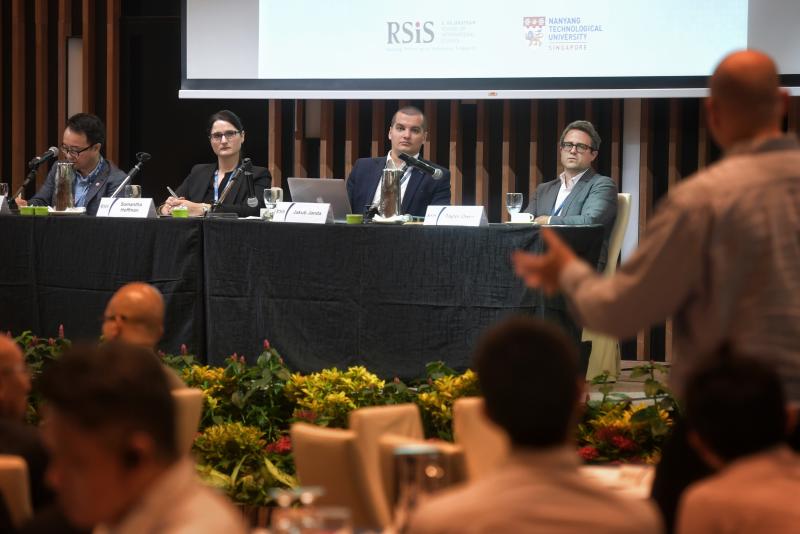Experts outline ways to counter foreign interference
Sign up now: Get ST's newsletters delivered to your inbox

Panel members at the Conference on Foreign Interference Tactics and Countermeasures, held on Sept 25, 2019. The conference was organised by the Nanyang Technological University's S. Rajaratnam School of International Studies.
ST PHOTO: KUA CHEE SIONG
SINGAPORE - Small states cannot fend off foreign interference alone as it "takes a network to defeat a network", said an expert on Wednesday (Sept 25) at a conference on foreign interference tactics and countermeasures.
In the same way that investors carry out public-private partnerships, governments need to enlist the support of other individuals and non-governmental organisations, said Mr Jakub Janda, the director of the European Center for Security Policy, during a panel discussion.
He outlined four steps they can take to defend themselves.
These are: document and increase understanding of the threat, mobilise self-defence through ambassador-level envoys and strengthen civil society, build resilience by regulating tech giants and funding digital and media literacy programmes in schools, as well as deter and punish by using sanctions and expulsions.
One example he gave is Australia's foreign interference laws passed last year. They make it a criminal offence to interfere in elections, provide intelligence to foreign governments and even steal trade secrets.
His fellow panellist, Associate Professor Taylor Owen of Canada's McGill University, said that the bigger threat to national security is not the law-breaking behaviour of people but the vulnerabilities in a country's information infrastructure, which is often outsourced to private organisations.
"This has left us open to manipulation," he said, citing fake activist campaigns and exploiting social divisions as some of the tools used by foreign organisations to create public confusion and anger.
To address this, the Canadian government passed the Elections Modernisation Act last year. The legislation requires platforms such as Facebook, Google and Twitter to maintain a registry of political and issue advertising during the election period.
Canadian universities have also been monitoring the media ecosystem and surveying voter behaviour towards Web content, he said.
"It's important to look at the nature of information itself - how do people come to know things during an election, and how are those things vulnerable to interference?"
But people's views on the right policy response can be hard to change. "We can correct people's belief on the existence of climate change, but it's much harder to convince them of the need for carbon tax," said Prof Owen.
This is worsened by the use of private online spaces such as encrypted messaging platforms. "The mood of much of the debate in private spaces... is a really wicked problem for receiving information during an election."


